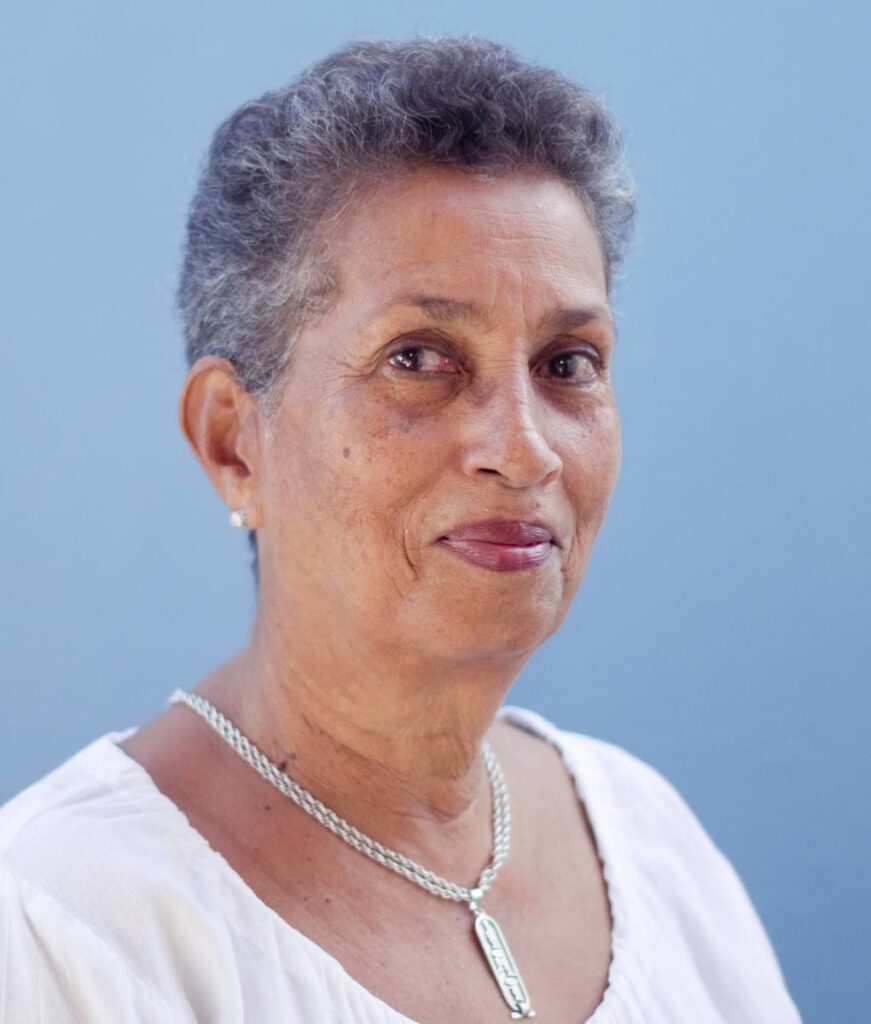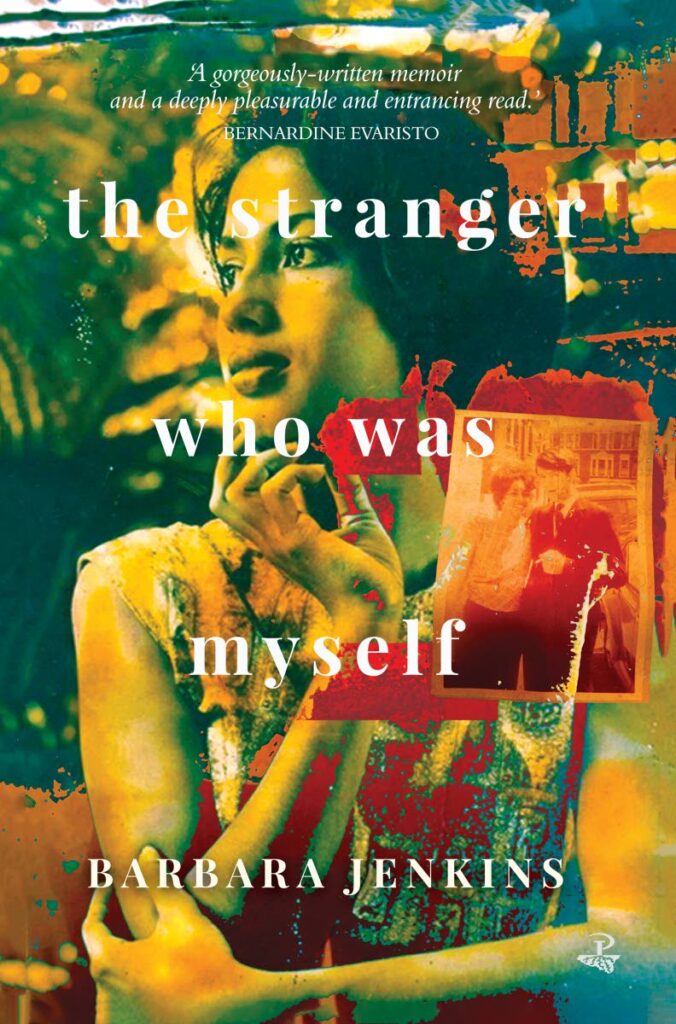Barbara Jenkins’s new memoir looks back at a long life

RAY FUNK
Barbara Jenkins is an inspiration to all who may think we are past our prime. After a rewarding career as a teacher, she started writing in her late '60s. At '70, Sic Transit Wagon, her collected short stories, appeared, to extensive praise, followed by her novel De Rightest Place.
Now, as she turns 80, her memoir, The Stranger Who Was Myself, has arrived.
It’s a careful reflection on a life of struggle, character and worth. She describes this memoir as an effort to “reconcile with the past.” She had written bits drawn from her childhood in her fiction, but now, thinking over her long life, she wanted to “get things off my chest.”
Focus to write came from the pandemic, when “everything came to a halt, and I had a lot of time with no distractions.”
Structure came from Derek Walcott, a beloved writer.
“I needed a trigger, a starting point,” she told Andre Bagoo during a recent Bocas Lit Fest online session.
For her, it was Walcott’s poem Love after Love, where the process is to examine, but also to confront:
…you will greet yourself
arriving at your own door, in your own mirror,
and each will smile at the other’s welcome.
and say, sit here. Eat.
You will love again the stranger who was your self.
Give wine. Give bread. Give back your heart to itself, to the stranger who has loved you…
The titles of the sections of the memoir are all taken from the poem.
The result is not a gentrified vision of an idyllic childhood, but a remembrance of struggles overcome and often replaced with new challenges. It is a direct, raw, complex narrative, in which she confronts difficult moments, sometimes with regrets courageously identified, often based on her family’s social status.
It includes a vivid account of her mother, who sacrificed everything to support her four children, and of “Pappy,” her violent, often absent father, with his other women and her strange meetings with them. Her formative secondary-school struggles to get ahead in the rigid, hierarchical structure of a convent-school system are carefully drawn in this future teacher’s youth. Her sense of being an outsider, alien to privilege is lightened by the discovery of friends as she advances in school.

The stunning main photo on the book’s cover is of her looking wistfully aside, not long before she left Trinidad to accept a government scholarship. She left Belmont with no one to accompany her, few ideas how to proceed, or even how to get to Wales, where she would attend college and later teach. Almost by accident, she entered Aberystwyth University in Wales, chosen because it lay at the top of an alphabetical list of options.
Some of her most telling and vivid remembrances are about small revelations, which come alive in her prose: she has an eye for detail and illustration. Her description of breakfast at the women’s dorm in college brings you to the table. Chatting with her friends, she details her choice of beverage in the context of the other students.
“I learned that when someone said tea they meant dried leaves measured out, put in a warmed teapot, scalding hot water poured over them, lid on pot, knitted teacosy over and left to brew for three minutes, poured into a cup into which a little milk had been put. I didn’t like tea. It tasted like what it was, an insipid brown liquid leached from dried leaves and smelling like the stagnant slimy algae that coated drains. I’d been raised on cocoa, the drink of the gods. At home logs of cocoa shaped from ground cocoa beans, grated, boiled with condensed milk, a rich butter rising in little globules to the top and forming a skin that silked your lips with every heartwarming, grateful for life sip of cocoa tea was my idea of tea.”
At college she meets and falls in love with her soon-to-be husband Paul (depicted in the small photo on the cover), and tells of their early relationship, marriage and going from college to work.
The Stranger Who Was Myself concludes with them taking their young daughter back by boat to Trinidad, where she has lived ever since, making it her home once again.
Sadly, Paul died 27 years ago but left her with cherished children, grandchildren and memories, now part of a written legacy that offers a strong, rich portrait of the times.
Jenkins had not been secretly composing manuscripts for decades that are only now being published. Her literary work is more of a distillation and reflection of busy decades overflowing with family and decades as a teacher in Trinidad.
“Much of my life was reading, not writing” she told Bagoo. It all changed when, in retirement, she was asked to join two friends in a writing circle, meeting weekly, presenting what each had written.
One of her pieces was well liked by them and she sent it to Nicholas Laughlin, now Bocas programme director, who suggested she should enter writing competitions. She kept submitting and kept winning. It led to a Cropper Foundation residential workshop for “emerging writers” on the North Coast at Balandra (where everybody was emerging much earlier than she!). The short programme was led by Funso Aiyejina and Merle Hodge, both professors at UWI.
She greatly enjoyed it, and the workshop and led to her entering an MFA programme under Aiyejina. Since then she has never stopped writing.
“Kind of a roller coaster and it just worked!"
Her recent Bocas Season of Independence Zoom event, hosted by Bagoo, with Ira Mathur, author of another new memoir, Love the Dark Days, both published by Peepal Tress Press, is online and is an introduction to this book. It’s at https://www.youtube.com/watch?v=SDyNX6JqhMw
All three of Barbara Jenkins’s books are available at Paper Based Bookshop, Metropolitan Booksellers, Tales and Treasures and other good booksellers.


Comments
"Barbara Jenkins’s new memoir looks back at a long life"